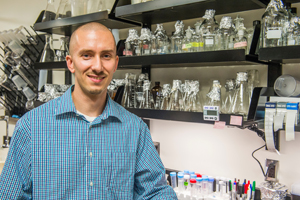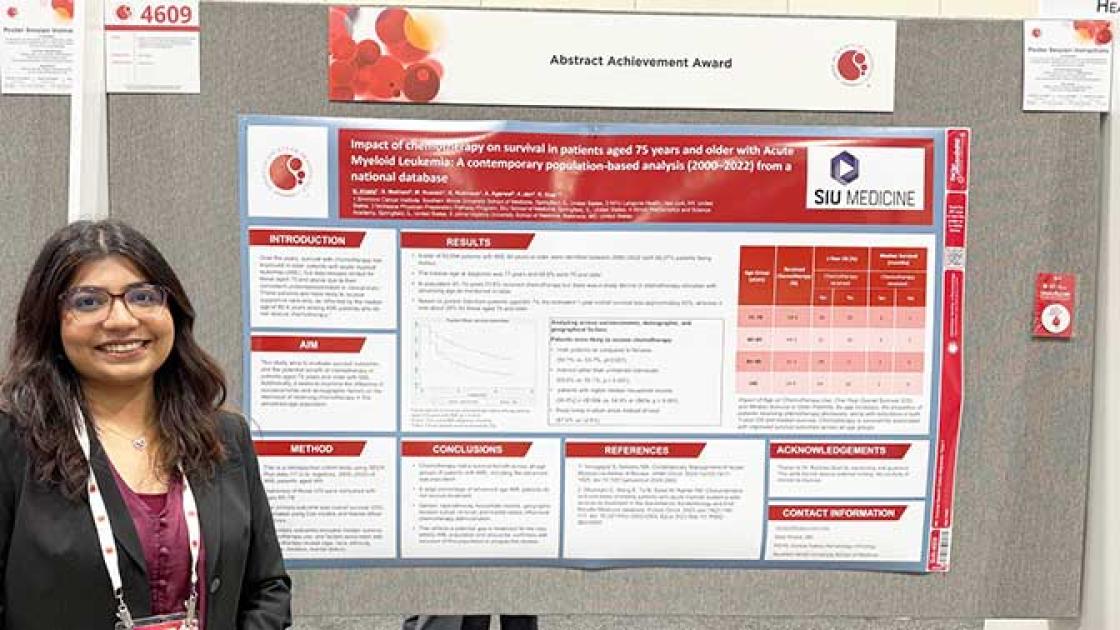
DoD Grant Boosts ALS and Dementia Drug Discovery Pipeline
Carbondale lab to study genetics of disease
The viral “Ice Bucket Challenge” that encouraged participants to raise money and awareness for amyotrophic lateral sclerosis (ALS) research has funded studies that led to a recent breakthrough: discovery of a new target gene common in more than 1,000 families with a history of ALS.
Based on those findings, a scientist at Southern Illinois University School of Medicine in Carbondale has been awarded a two-year grant from the Department of Defense that will allow him to use cutting-edge technology to study a key genetic mutation that causes both ALS, or Lou Gehrig’s disease, as well as a common memory disorder called frontotemporal dementia (FTD). Keith Gagnon, PhD, assistant professor of biochemistry and molecular biology , will be working in collaboration with the High Throughput Bioscience Center at Stanford University to screen more than 100,000 chemicals in search of potential ALS and FTD treatments.
, will be working in collaboration with the High Throughput Bioscience Center at Stanford University to screen more than 100,000 chemicals in search of potential ALS and FTD treatments.
The grant award is $648,728.
ALS is a progressive neurodegenerative disease that causes muscle weakness, paralysis and ultimately, respiratory failure. The new study will focus on the most common genetic form of ALS and FTD, which is caused by mutation in a gene called C9ORF72. Gagnon’s lab will develop models of disease based on special signatures from the C9ORF72 gene and track them at the cellular level with fluorescent imaging. The Stanford center will then use automation to rapidly “read” the biological activity of the models and screen them through chemical libraries in search of potential drug candidates that could ultimately improve patient outcomes. The project is funded by a Therapeutic Idea Award through the Department of Defense ALS Research Program.
Gagnon received his doctorate in biochemistry in 2007 from North Carolina State University. After completing postdoctoral training at UT Southwestern Medical Center in Dallas, Texas, he was jointly appointed to the Department of Chemistry and Biochemistry in the College of Science and the Department of Biochemistry and Molecular Biology in the School of Medicine in 2014.
Research reported in this press release is supported by US DoD under contract number W81XWH-16-1-0176.




